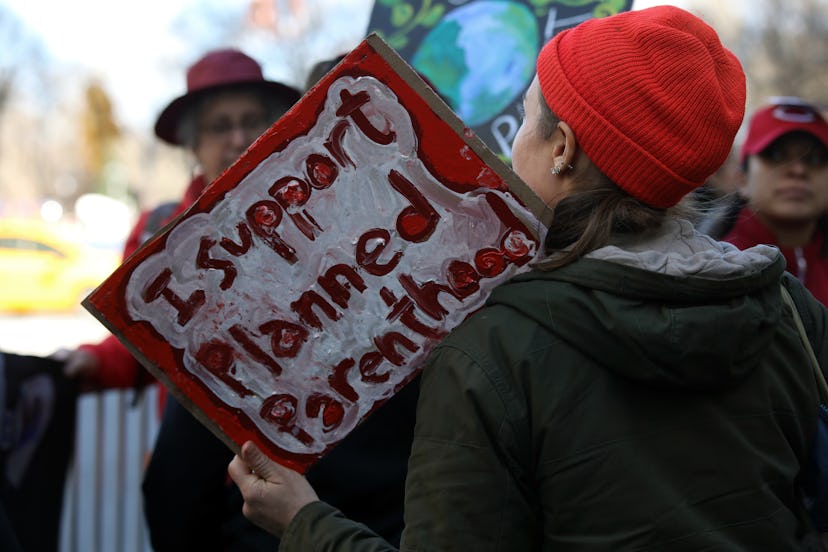Actually, Hollywood’s Boycott in Georgia Might Do More Harm Than Good to Pro-Choice Women

One week ago, Georgia governor Brian Kemp signed a bill outlawing abortions after six weeks—effectively outlawing abortion statewide, seeing as few women are even aware that they’re pregnant that early into their first term. (For those who are, that still leaves little to no time to schedule and go through with a procedure.) Extreme as it is, the move is not exactly unprecedented: Georgia is now the fourth state to enact such legislation so far this year, as part of a nationwide attack on women’s reproductive rights and attempt to overturn the Supreme Court’s landmark 1973 ruling in Roe v. Wade. (Similar laws will go into effect in Ohio and Mississippi as soon as this July.)
And yet, HB 481, which is set to go into effect in January of 2020, has already set itself apart; whether in outrage or acclaim, the response to Kemp’s move was both sizable and swift. As in the past, the ACLU and the Center for Reproductive Rights quickly promised to challenge it in court. And surprisingly enough, dozens of entertainment industry figures took up the cause as well. They may have been silent in the past, but the political is the personal, and when it comes to Georgia—until recently the no. 1 filming location in the world—Hollywood’s ties run deep.
If the bill isn’t overturned soon, though, that era may come to an end. Two days after it was passed, David Simon, the creator of The Wire, announced that he and his production company would no longer be involved in Georgia-based projects. “I can’t ask any female member of any film production with which I am involved to so marginalize themselves or compromise their inalienable authority over their own bodies,” he tweeted. “I must undertake production where the rights of all citizens remain intact. Other filmmakers will see this.”
They did indeed. With the help of producers like Ed Helms, Christine Vachon, and Mark Duplass, a boycott was born, bolstered by support from actors such as Natalie Portman, Brie Larson, Judd Apatow, and Naomi Watts. (Plus two actors who’ve repeatedly been accused of misogynistic behavior: Alec Baldwin and Sean Penn.) In April, amid discussion of the bill, they joined more than 100 others in appealing to Georgia’s governor and speaker of the house via an open letter, making their argument from an economic standpoint. “We can’t imagine being elected officials who had to say to their constituents ‘I enacted a law that was so evil, it chased billions of dollars out of our state’s economy,'” it read, in part, serving as a reminder that between June of 2017 and 2018, the billions of in-state spending that came from film and TV production made up 1.6 percent of Georgia’s gross state product.
All in all, it’s been a good week for those who support the bill being overturned. Or at least it seemed like it had been, until an important portion of those who identify as “part of the resistance”—those who the bill will actually affect—finally spoke up. Just as you might expect, a number of women who work in film and TV in Georgia have voiced their opposition to the bill. But no one seemed to expect the way in which they’d do so—at the same time as voicing their opposition to the entertainment industry’s boycott, via a petition that’s gotten more than 1,000 signatures since Sunday.
The entertainment industry doesn’t just contribute billions of dollars to Georgia’s economy; it also contributes an estimated 92,000-plus jobs. Realistically, in the grand scheme of things, they’re the ones truly affected by a cutback in profits and resources—not the politicians so keen on dismantling reproductive rights. It’s a familiar conundrum, as celebrities who joined George Clooney in protesting anti-LGBT legislation in Brunei with a boycott in late March can attest.
In that case, what, if anything, can Hollywood do? So far, it looks like the answer is to be more like J.J. Abrams and Jordan Peele, who’ve determined to continue carrying out their plans to shoot their upcoming HBO series, Lovecraft Country, in Georgia, but to donate the profits they earn from doing so to two groups they described as “leading the charge against this draconian law”: Fair Fight Georgia and the ACLU of Georgia. After all, Georgia senator David Purdue, who supports the bill, has a point; is a production company that promises to refrain from working in Georgia, even though it has only infrequently, if ever, done so in the past, really taking action at all?
Of course, not everyone is fortunate enough to be able to donate the entirety of their salaries, let alone have the opportunity to produce, or decline to produce, a series for HBO. But there are other ways for celebrities to use their platforms, too. Busy Philipps, for example, has made efforts to reduce the stigma around abortion by publicly opening up about the one that she had at age 15, both in her 2018 memoir and last week on her talk show, Busy Tonight.
There have been no such contributions from corporate giants such as Netflix, even though many took part in the boycott that successfully saw Georgia veto HB 757, an anti-LGBT religious liberty bill, in 2016. That zeal does not, apparently, extend over to moral quandaries involving their bottom line. When asked for comment by Rolling Stone, Netflix referred the outlet to a remarkably blithe statement by the MPAA: “It is important to remember that similar legislation has been attempted in other states, and has either been enjoined by the courts or currently being challenged.”
From the streaming service that currently has more projects underway in Georgia than any other company, it’s quite a disheartening response. Then again, nothing, it seems, will stop Netflix from churning out endless content.